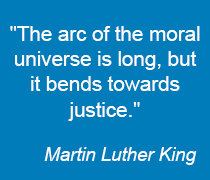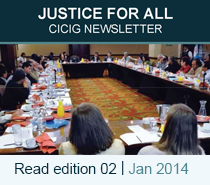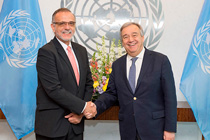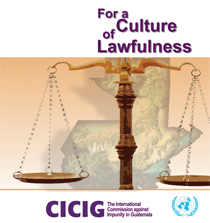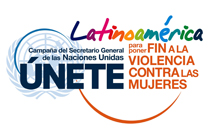|
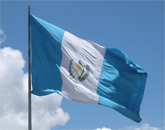 Guatemala, February 10, 2010. During a conference with hundreds of young university students, CICIG’s Commissioner Carlos Castresana spoke about the recognized honourability required of the new Attorney General of the country. This is an intangible quality that is recognized from afar but which for a few who wish to insist on compromises is an abstract and confusing concept. Guatemala, February 10, 2010. During a conference with hundreds of young university students, CICIG’s Commissioner Carlos Castresana spoke about the recognized honourability required of the new Attorney General of the country. This is an intangible quality that is recognized from afar but which for a few who wish to insist on compromises is an abstract and confusing concept.
Think about world personalities who have stood out for their honesty and that sensible people immediately identify as honest persons devoted to their work, persons who cannot be corrupted with a wad of bills. There are many. And Guatemala has many, but where are they?
These are the honorable persons who should be Attorney General candidates in a process that will be watched and controlled by civil society and, why not? by the entire community.
Young university students asked: what can we do to have the best Attorney General? Commissioner Castresana responded: “young university students have a huge responsibility in the future of some crucial aspects of his country that are at stake at this time”. The young people now are well informed and therefore it is their duty to establish a commitment with their country.
Guatemala has a serious Achilles’ tendon: the problem of security and justice, which, in this historical moment for the country, translates in the election of one of the most important public figures: the Attorney General of the nation.
Commissioner Castresana has stated that Guatemala finds itself in the midst of a number of circumstances that make it very different from almost every other country in the world, at least in democratic countries governed by the principle of legality where the law is enforced equally in the case of rich and poor, the powerful and the neglected, politicians, business persons, workers and any other person. There, the law is equal for everyone.
“In the most advanced democratic societies, criminal law is the last ratio, the legal system with many modalities that regulate life and relations among individuals, between institutions and individuals, the operation of those institutions, and only when legal order is broken and the most valuable legal assets are attacked, the criminal law is resorted to, because normally, in 90% of the cases in democratic countries, citizens obey the legal system by their own free will” the Commissioner explained.
Therefore, criminal law focuses on controlling a minority that despite the existence of a legal standard, decides to live outside of those limits and decides to violate some standards.
In the meantime, in democratic societies, 90% or more of the citizens, that is, most of the population, obey the basic rules of life in a society, respect public and private goods, pay their taxes on time, solve their conflicts peacefully through the courts of justice and do not violate the right to life, the right to freedom, the right to physical integrity, the right to property or any other fundamental right of their fellow citizens. But this is unfortunately not what happens in Guatemala. There are too many crimes, too much violence in Guatemala.
According to CICIG’s Commissioner, “since the court system does not work in Guatemala, the tradition is for people to solve their conflicts by their own hand without resorting to the authorities, without complaining to the police, without trusting the Public Prosecutor’s Office and without using to the courts. And it is in these conditions that criminal law becomes a key player – wishing it were not – because it is called upon to fight and act as the arbitrator in conflicts that are solved through other procedures in other countries. So criminal law here is not the last but the first and most necessary tool, and yet paradoxically, the one that is most absent. There is huge criminal activity and extremely poor institutional response”.
This last tool, which here is the first, in other words, the tool that should be exceptional and the most important one here, is in the hands of one single person, one single institution that must be independent, impartial, and effective and must be at the service of citizens: the Attorney General of the Country.
“So, in circumstances where impunity is the rule and justice the exception, it is necessary for the Attorney General to be Guatemala’s best criminal prosecutor to carry out a task that seems almost impossible but which can be accomplished: to change the situation of systematic and generalized injustice and bring justice to the victims of common crime, organized crime, economic crimes, and violent crimes that strike this country. In other words, the Attorney General has the responsibility to bring justice to a people that need it and yearn for it” Castresana adds.
This is the time for youth, for new generations. It's time for them to advocate for the change that youths demand. "You can go one by one to your Law Schools and talk to your Deans and say: we would like you to explain publicly who you will support and why. We would like to be sure that this time the Dean of my School of Law and that of my friends and family will not allow someone without a recognized honesty track to move on to the short list of six from which the President has to choose the Attorney General" was the final message of the Commissioner of CICIG to students.
IMPUNITY STATISTICS
Statistics provided by the Public Prosecutor’s Office and INACIF speak of approximately 6,450 murders and 231 convictions, of which 29 were for statutory offenses (traffic accidents or medical malpractice). Therefore, there are 202 convictions for violent deaths in the year, in contrast with more than 6.450 violent deaths.
|


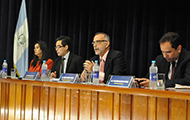
 Guatemala, February 10, 2010. During a conference with hundreds of young university students, CICIG’s Commissioner Carlos Castresana spoke about the recognized honourability required of the new Attorney General of the country. This is an intangible quality that is recognized from afar but which for a few who wish to insist on compromises is an abstract and confusing concept.
Guatemala, February 10, 2010. During a conference with hundreds of young university students, CICIG’s Commissioner Carlos Castresana spoke about the recognized honourability required of the new Attorney General of the country. This is an intangible quality that is recognized from afar but which for a few who wish to insist on compromises is an abstract and confusing concept.